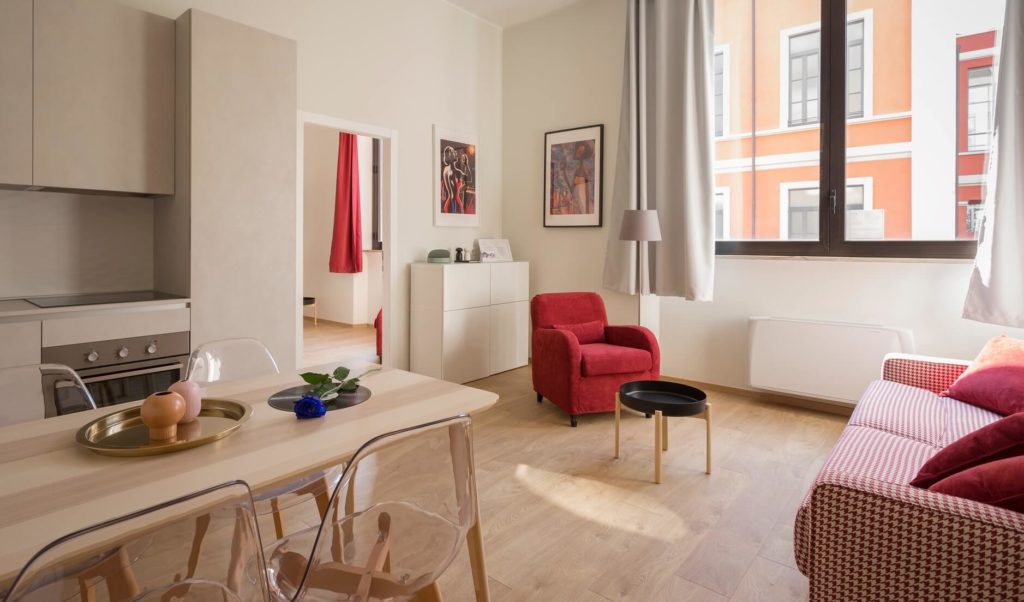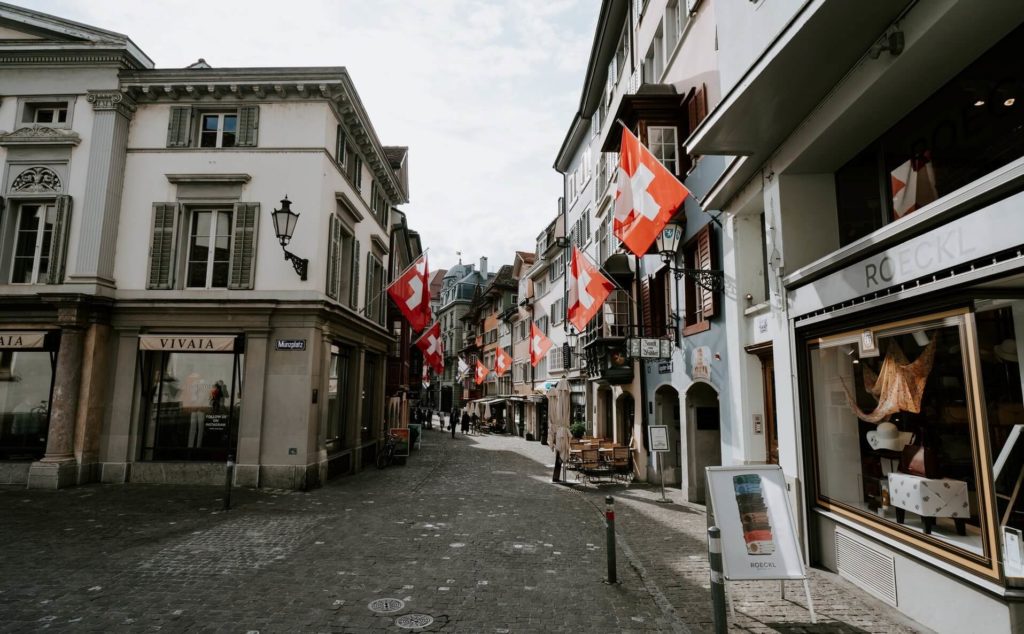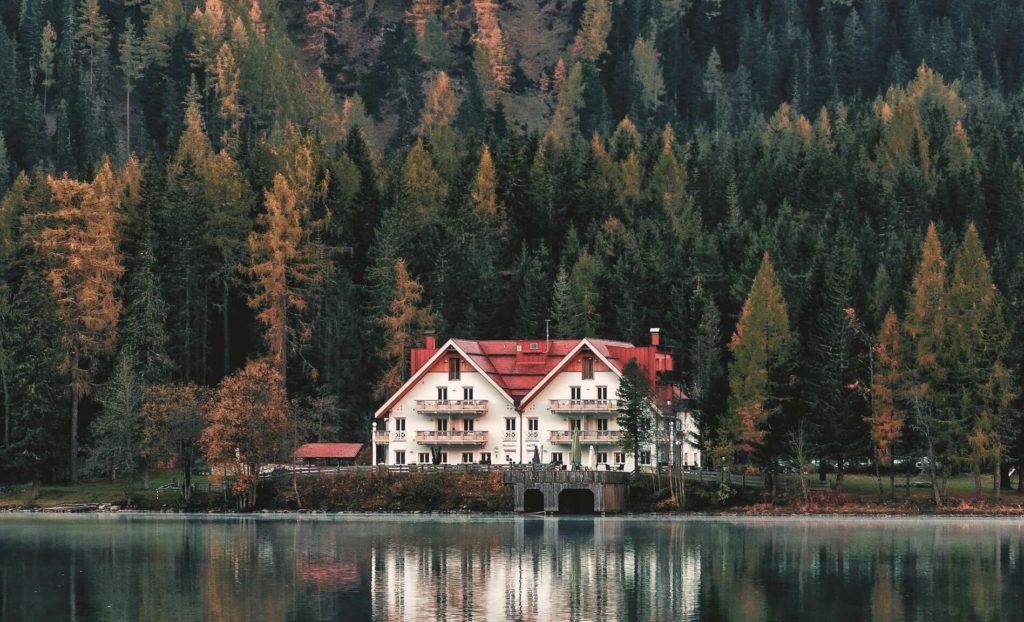There are many reasons why someone would want to reside in Switzerland. Swiss student life is lively and memorable. It’s generally safe to live in Switzerland, the Swiss have unique culture and traditions, and many simply like the Swiss lifestyle—and who wouldn’t? It’s quiet, active, fulfilling, and very fun.
Apart from that, nearly 60% of the Swiss population, both locals and internationals, rent instead of buying.
Whatever the reason for your visit may be, here are a few things you need to know before renting in Switzerland.
How to Find an Apartment in Switzerland?

Finding an apartment in Switzerland shouldn’t be too hard seeing how many functions have moved online, and apartment advertising is no exception. However, you may need to be a little more extensive in your research because, in some areas, the market is hypercompetitive.
There are a few routes you can take when searching for housing in Switzerland, such as checking online, the daily newspaper, asking people you know, etc.
You can also search for a real estate agency. If you opt for this, you should consider walking around the neighborhood you wish to live in and search for a real estate agency since they tend not to have an English online presence.
Online housing portals
Many online housing portals for Switzerland are set up in one of their national languages. However, there are a few that offer English translation as well.
Here are some online housing portals for finding an apartment to rent in Switzerland:
Apart from these websites, you can also use Reddit as a tool and search for a subreddit of a specific city, such as r/Zurich.
Cost of Renting in Switzerland
The average cost of rent in Switzerland doesn’t clearly show how much your rent could cost. Given that rent varies vastly from city to city, and cities compared to rural areas are a lot more expensive, it’s best to look at the average rent of a specific area.
For instance, a one-bedroom apartment could cost anywhere from CHF 900 to CHF 2,000, depending on the area.
In addition, if you’re looking for affordable housing near the city center, it’s wise to take a look at shared flats. Especially if you plan on studying in Switzerland on a budget, that could be your best option.
However, the general cost of living in Switzerland also depends on your habits. If you tend to eat in and only use public transport, your monthly expenses go down significantly. Whereas, if you’re someone who enjoys eating out and traveling a lot, your monthly expenses will be higher.
Swiss Tenancy Law

Swiss rental contracts are often comprehensive contracts. These documents are long and include many details. On your rent application form, be prepared to include age, marital status, number of children, profession, employer, letter of recommendation from your employer, visa status, salary, pets, etc.
The landlord and the tenant usually have a written rent contract, so it would be best for both parties to thoroughly read the document.
You can also expect your landlord to ask for a deposit, which is a pre-pay of a maximum of three months’ rent. This money is held in a special bank account that has the tenant’s name.
Both the landlord and the tenant can terminate the tenancy (according to dates set in the rental contract). The termination has to be in written form. However, if either party disagrees with the termination, they have the right to file a complaint within 30 days of receiving the termination letter.
Swiss Property Descriptions
Properties in Switzerland often include the total number of rooms excluding the bathroom, and in certain locations, they even exclude the kitchen. When the kitchen is part of the living room, it is sometimes included as 0.5 of a room. However, listings include the total space of the residence, so you will have a clearer idea of how much space you’re actually renting.
Another thing worth noting is that Swiss apartments and houses for rent are typically without any furnishings. So, while you’re in the process of looking, check whether they have any kind of kitchen appliances.
As far as laundry goes, laundry facilities are often communal and within the building. Usually, tenants will have a time slot for usage.
Seeing how important outdoor space is to Swiss people, you can expect a balcony included in your apartment. Sometimes, there is a communal garden which you will have access to. Properties near bodies of water often have access to the water, and with them, you can expect higher rent prices.
Renting in Popular Swiss Cities

You can guess that renting in bigger Swiss cities comes with a higher price tag, and it does. You should also keep in mind that renting markets near cities such as Zurich and Geneva are highly competitive, and apartments are rented within hours of posting.
That being said, here are a few tips for renting in specific Swiss cities.
Renting in Zurich
If you’re interested in renting an apartment in Zurich, you should know that it is in the topmost expensive places to rent in Switzerland. You can usually find apartments via websites with listings. The average prices for apartment renting in Zurich are:
- CHF 3,000 for a standard 4.5 room apartment
- CHF 2,500 for a standard 3.5 room apartment
- CHF 1,700 for a standard 2 room apartment
Student housing in Zurich
Student apartments in Zurich are usually somewhere around 21-48m². The costs begin at CHF 1,700 and can even be up to CHF 5,000 depending on the location and the apartment itself. For help with finding students housing in Zurich, you can turn to your university’s student help center.
Renting in Geneva
Geneva, with all its beauty, is the most expensive place to rent in Switzerland. In addition, the renting market is competitive, so it’s best to secure a space before going there. However, once you’re settled, you get to enjoy the Swiss lifestyle and scenic outdoors. The average renting prices in Geneva are:
- CHF 3,800 for a standard 4.5 room apartment
- CHF 2,700 for a standard 3.5 room apartment
- CHF 1,800 for a standard 2 room apartment
Student housing in Geneva
When it comes to student apartments in Geneva, they are often somewhere around 22-42m². Averagely, they are slightly more costly than those in Zurich. However, you can find rooms for rent under CHF 1,000 if you search thoroughly. You can turn to your university for help with housing if needed.
Renting in Lausanne
Similar to Zurich and Geneva, Lausanne is known for having a competitive renting market too. Having a dense population also makes apartment hunting harder. However, the prices are considerably lower than in the aforementioned cities. The average renting prices in Lausanne are:
- CHF 2,800 for a standard 4.5 room apartment
- CHF 2,200 for a standard 3.5 room apartment
- CHF 1,500 for a standard 2 room apartment
Student housing in Lausanne
Apart from shared flats, Lausanne also has a student village located on the outskirts of Ecole Polytechnique Fédérale de Lausanne (EPFL). If you like being surrounded by students, then that is the perfect place for you. You can also find flats in the city if you would rather be away from university in your free time.
Renting in Basel
Basel is known for its residents enjoying high-quality lives and being somewhat inexpensive compared to other big cities in Switzerland. Similar to Lausanne, Basel is densely populated as well. The average renting in Basel are:
- CHF 2,600 for a standard 4.5 room apartment
- CHF 2,000 for a standard 3.5 room apartment
- CHF 1,400 for a standard 2 room apartment
Student housing in Basel
Student apartments in Basel are usually between 27m² and 54m², and the prices start at around CHF 1,500. However, finding shared flats or renting a room somewhere can have a significantly lower price. If you have trouble finding an apartment in Basel, you can always turn to your university help center.
Renting in Rural Switzerland

As mentioned before, renting in more rural areas of Switzerland can be a lot cheaper than renting in big cities. However, there are also fewer places to rent due to the fact that most property in Swiss rural areas is not rented; instead, they have permanent residents.
Living in Swiss suburbs can be rewarding and reduce your living costs considerably. Since the Swiss railway system is advanced and highly functional, most rural areas are connected to it. By using the Swiss public transport system, you can get to work fast and still live in an affordable area in Switzerland.
The Swiss rural area is mostly preferred by older people, rather than students. Young people tend to prefer living in the city, where life is more fast-paced.
Renting in Switzerland is a long thorough process, and there are many things to consider before deciding to go through with it. Given that more than half of the population rents, it is a very regulated process.
Before deciding to rent in Switzerland, you should know about the cost, tenancy laws, and how to find an apartment in Switzerland. We hope this article helped you understand everything there is to know about renting in Switzerland!



Thank you so much, you really educated me on this.. I am coming to Switzerland as a student..
I need a small house from 700 to 1000.
God bless you immensely!
Thanks for the interesting article. Switzerland has a really developed rental industry and there is a great choice. However, prices are sometimes high.
I would like to rent a small apartment or room in a farm community. Hopefully close to fishing area